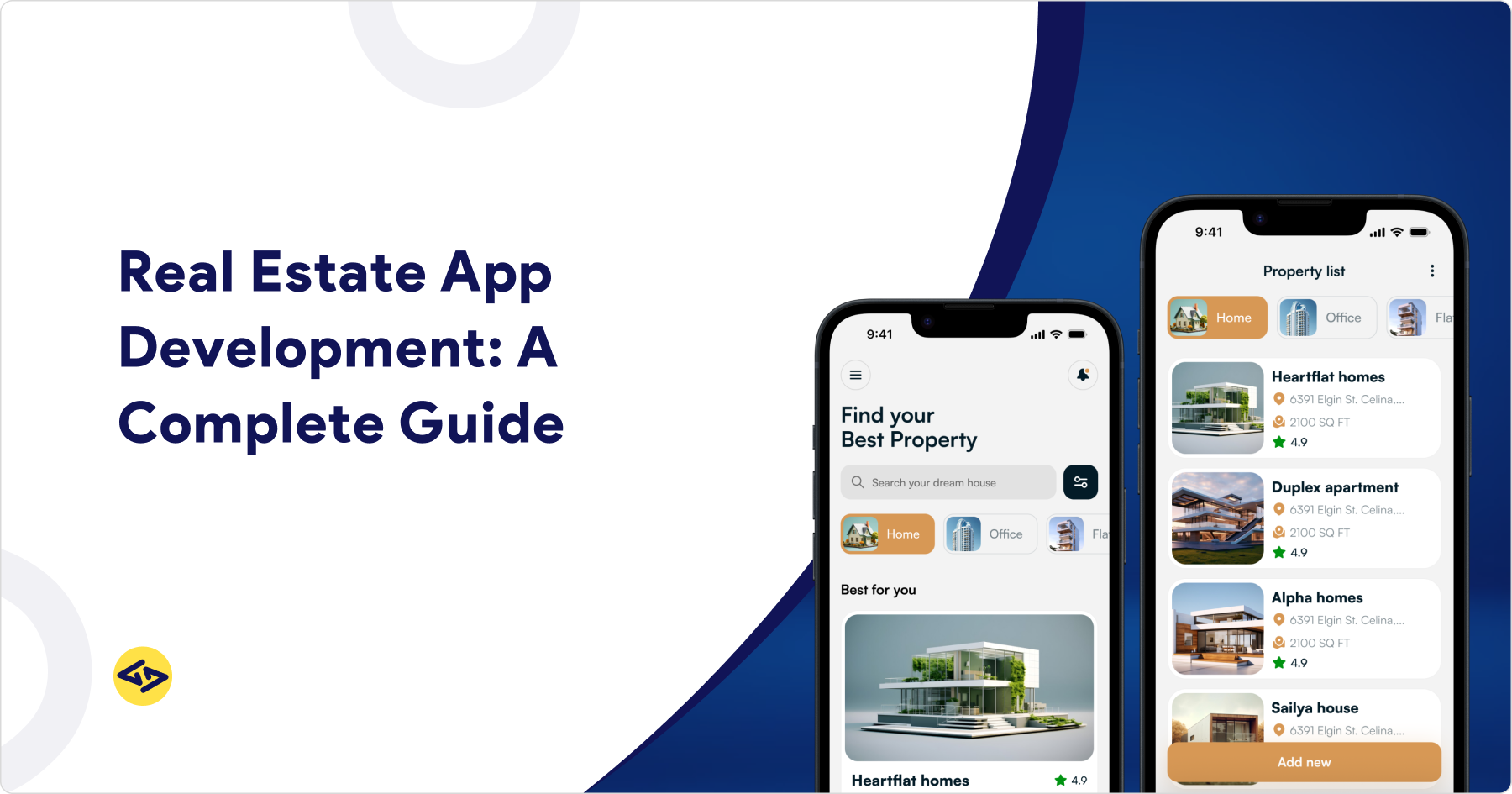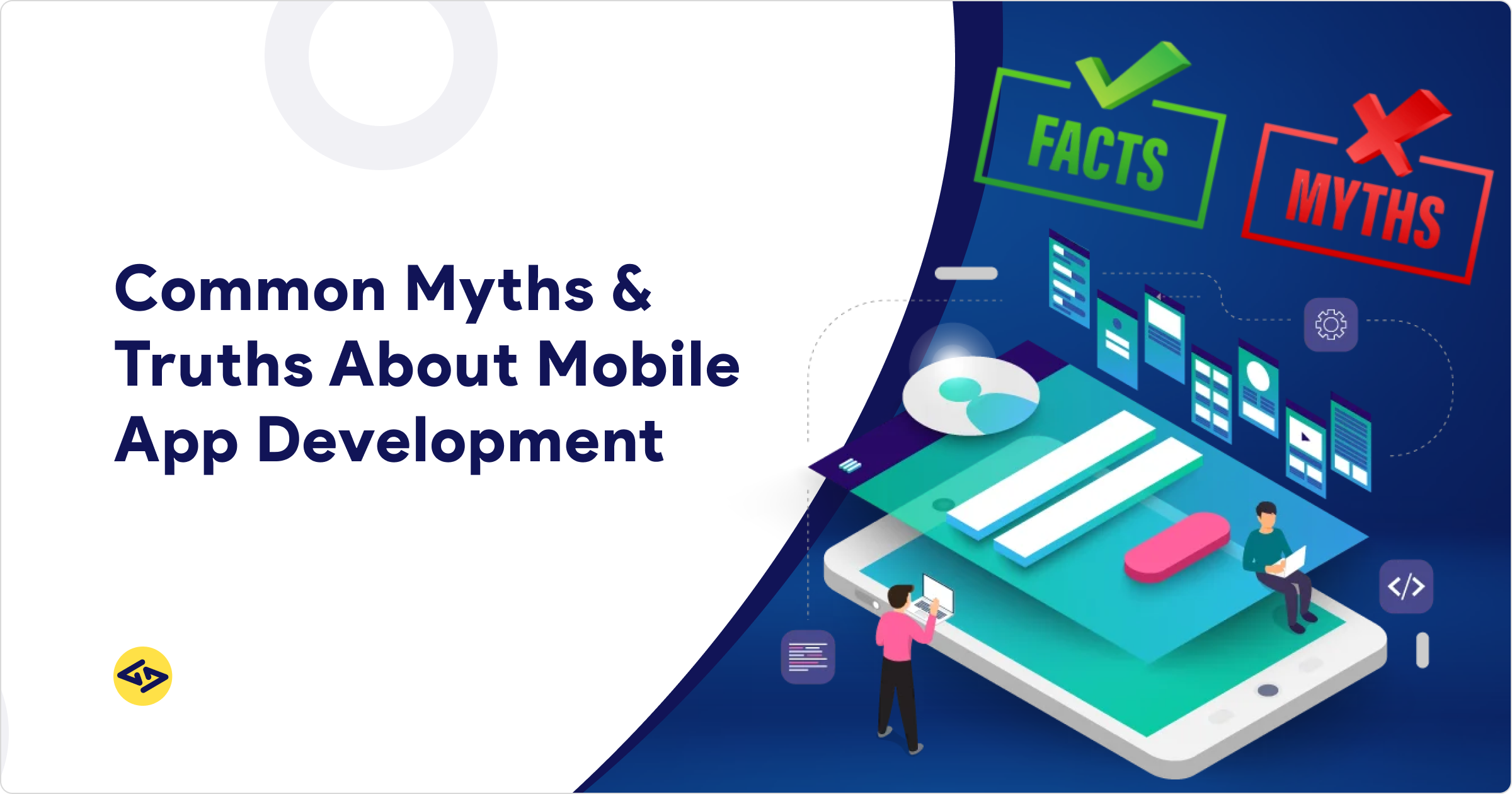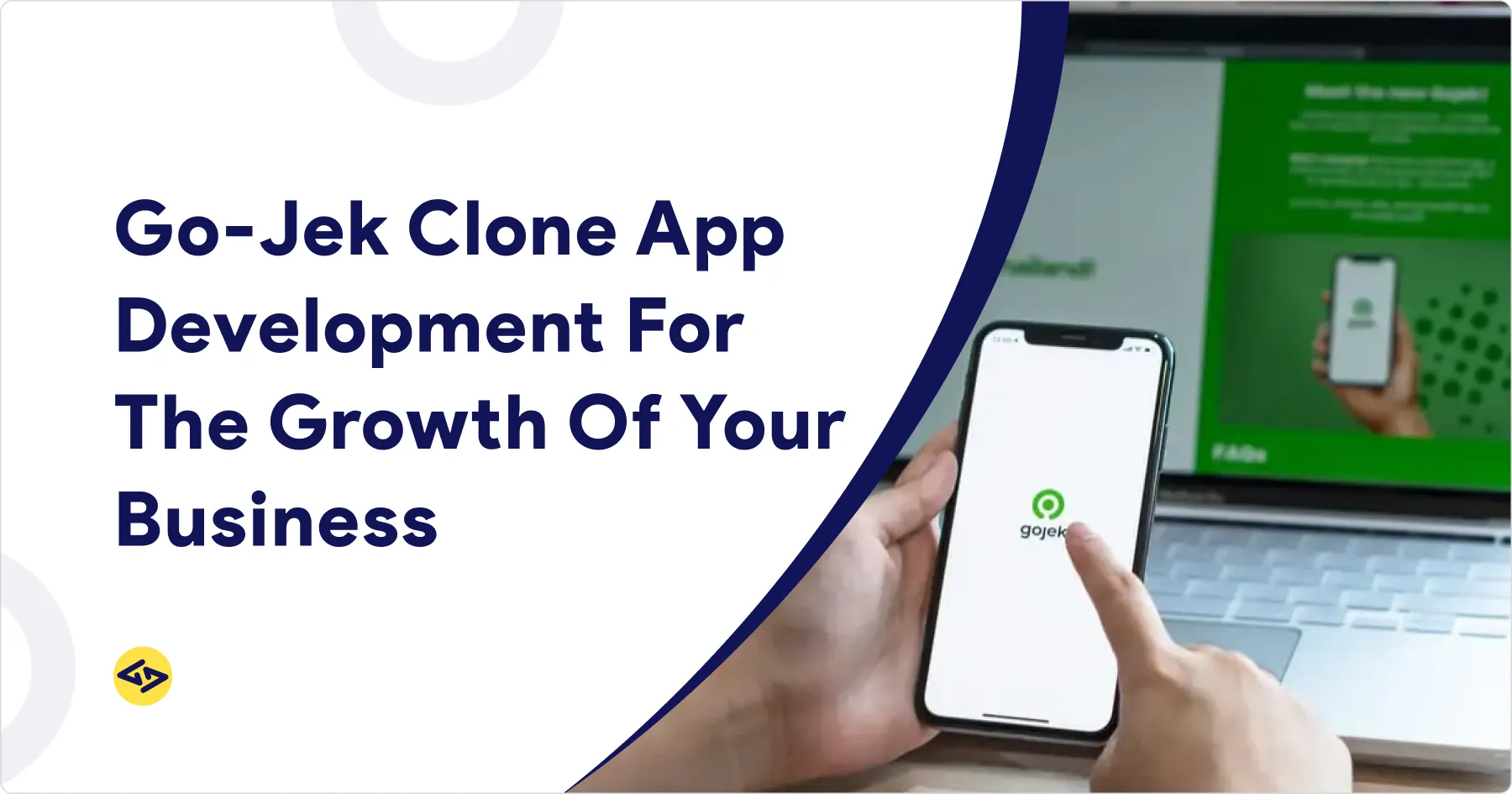The real estate industry is experiencing a digital revolution, with property buyers, sellers, and agents increasingly turning to mobile applications for their property needs. Real estate app development has become a vital investment for businesses seeking to remain competitive in today’s market. Whether you’re searching for your dream home, managing multiple properties, or connecting clients with perfect matches, mobile apps have transformed how we interact with real estate.
This comprehensive real estate app development guide will walk you through everything you need to know about building a successful property app. From understanding market trends to calculating real estate app development costs, we’ll cover the essential steps, features, and considerations that will help you create a powerful digital solution for the modern real estate market.
Why Invest in Real Estate App Development?
Changing Consumer Behavior Towards Online Property Search
Today’s property buyers and renters expect instant access to listings, virtual tours, and seamless communication with agents. According to recent industry statistics, over 95% of home buyers use mobile devices during their property search process. This shift in consumer behavior makes mobile app development for real estate not just an option but a necessity for staying relevant.
Benefits for Agents, Brokers, and Buyers
Real estate app development services offer numerous advantages:
For Agents: Streamlined client management, automated lead generation, and 24/7 property showcasing
For Brokers: Enhanced brand visibility, improved operational efficiency, and data-driven insights
For Buyers: Convenient property search, instant notifications, and direct communication with agents
To further boost client acquisition, many professionals also explore platforms where they can buy real estate leads to connect with high-intent property buyers and sellers.
Market Statistics Highlighting Growth
The global real estate software market size was evaluated at USD 10.24 billion in 2022 and is projected to reach USD 25.39 billion by 2030, growing at a CAGR of 12.8% from 2023 to 2030. These numbers underscore the substantial opportunity for custom real estate app development and the potential return on investment for businesses entering this market.
For businesses looking to capitalize on this growth, partnering with experienced real estate app development services can provide the expertise needed to create competitive solutions.
Types of Real Estate Apps
Understanding different app types is crucial when planning your real estate app development process:
Property Listing Apps
These apps focus on displaying available properties with detailed information, photos, and contact details. Popular examples include Zillow and Realtor.com.
Property Management Apps
Designed for landlords and property managers to handle tenant communications, rent collection, and maintenance requests efficiently.
Real Estate Aggregator Apps
These platforms compile listings from multiple sources, offering users a comprehensive view of available properties in specific areas.
AR/VR-Based Virtual Tour Apps
Virtual tour real estate app development enables immersive property experiences without the need for physical visits, becoming increasingly popular post-pandemic. Discover how to effectively implement AR/VR in real estate apps to create immersive and engaging user experiences.
Real Estate CRM Apps
Real estate CRM app development enables agents to effectively manage client relationships, track leads, and automate follow-ups, resulting in improved conversion rates.
Key Features to Include in Your Real Estate App
When planning how to build a real estate app, consider these essential real estate app features:
Core User Features
- User Registration and Profiles: Secure authentication with social login options
- Advanced Property Search: Filters by price, location, property type, and amenities
- High-Quality Images and Video Tours: Professional media showcasing properties
- Map Integration and Geolocation: Interactive maps with nearby amenities
- Virtual Tours (AR/VR): Real estate app with AR VR features for immersive experiences
Communication Features
- Chat and Call Options: Direct communication with agents and property owners is available.
- Push Notifications: Instant alerts for new listings and price changes
- Appointment Scheduling: Automated booking system for property viewings
Utility Features
- Mortgage Calculator: Built-in financial tools for buyers
- Reviews and Ratings: User-generated content for credibility
- Favorites and Wishlist: Save preferred properties for later viewing
For a comprehensive breakdown of essential functionalities, explore this detailed guide on real estate app features that modern users expect.
Admin Panel Features
- Property Management Dashboard: Comprehensive control over listings
- User Management: Monitor and manage app users
- Analytics and Reporting: Track app performance and user behavior
Step-by-Step Guide to Building a Real Estate App
Step 1: Define Your App Goals and Audience
Begin your real estate app development step-by-step process by clearly defining your target audience and business objectives. Are you targeting first-time homebuyers, luxury property seekers, or rental markets?
Step 2: Conduct Market Research
Analyze competitors, identify market gaps, and understand user preferences to inform your strategy. This research will inform your real estate app design and feature prioritization.
Step 3: Choose Your Business Model
Select from popular monetization strategies:
- Commission-based: Percentage from successful transactions
- Subscription model: Monthly/yearly fees for premium features
- Advertisement revenue: Sponsored listings and banner ads
- Freemium model: Basic features are free, premium features are paid
Step 4: Select the Right Technology Stack
Your real estate app technology stack choice impacts performance, scalability, and development costs. When choosing the right technology for your project, consider consulting with mobile application development experts who can guide you through the best options for your specific requirements:
Frontend Development:
- iOS: Swift/Objective-C
- Android: Java/Kotlin
- Cross-platform: React Native, Flutter
Backend Development:
- Node.js, Python (Django/Flask), Ruby on Rails
- Database: PostgreSQL, MongoDB, MySQL
- Cloud Services: AWS, Google Cloud, Microsoft Azure
Step 5: Design UI/UX
Focus on real estate app UI UX design that prioritizes user experience. Create intuitive navigation, visually appealing property displays, and seamless user flows.
Step 6: Develop App Modules
Start with core features and gradually add advanced functionalities. This phased approach helps manage the real estate app development timeline and budget effectively.
Step 7: Integrate Key Add-ons
Incorporate third-party services:
- MLS Integration: Access to Multiple Listing Service data
- Payment Gateways: Secure transaction processing
- Map Services: Google Maps or MapBox integration
- Analytics Tools: Google Analytics, Firebase Analytics
Step 8: Test Your App Thoroughly
Comprehensive testing ensures your app functions flawlessly across different devices and scenarios. Include unit testing, integration testing, and user acceptance testing.
Step 9: Launch and Deploy
Submit your app to app stores (Google Play Store, Apple App Store) following their guidelines and requirements.
Step 10: Market Your App
Develop a comprehensive marketing strategy including:
- App Store Optimization (ASO)
- Social Media Marketing
- Content Marketing
- Influencer Partnerships
- Paid Advertising
Step 11: Gather Feedback and Improve
Continuously collect user feedback and implement improvements. Regular updates and feature enhancements maintain user engagement and app relevance.
Real Estate App Development Cost Estimation
Understanding the cost of building a real estate app is crucial for effective budget planning and informed business decisions.
Factors Affecting Cost
Features Complexity:
- Basic app: $30,000 – $60,000
- Medium complexity: $60,000 – $120,000
- Advanced app: $120,000 – $250,000+
Platform Selection:
- Single platform (iOS or Android): Lower initial cost
- Cross-platform: Higher upfront investment but broader reach
Technology Stack:
- Native development: Higher cost but better performance
- Cross-platform: Cost-effective, but with potential performance trade-offs
Development Team Location:
- North America: $100-200/hour
- Europe: $50-100/hour
- Asia: $25-50/hour
Approximate Cost Range
The cost of a comprehensive real estate app development typically ranges from $50,000 to $200,000 for a full-featured application, depending on its complexity and requirements. For a detailed cost analysis and breakdown, refer to this comprehensive guide on the cost to develop a real estate app, which covers all factors that affect your budget.
Challenges in Real Estate App Development
Data Privacy and Security
Protecting user data and financial information requires robust security measures, compliance with regulations like GDPR, and secure payment processing.
Integrating Multiple Listing Services (MLS)
MLS integration can be complex due to varying data formats and access restrictions across different regions.
Keeping Property Data Updated
Real-time data synchronization ensures users see current property availability and pricing information.
Managing AR/VR Content Efficiently
Virtual tour real estate app development requires substantial storage and processing power to deliver high-quality, immersive experiences.
Future Trends in Real Estate Apps
AI-Based Property Recommendations
Machine learning algorithms analyze user behavior to suggest relevant properties, improving user experience and conversion rates.
Blockchain for Secure Transactions
Blockchain technology enables transparent and secure property transactions, as well as smart contracts for automated processes.
IoT-Enabled Smart Property Management
Internet of Things integration enables the remote monitoring and management of property systems, including security, lighting, and climate control.
Advanced AR/VR for Immersive Experiences
Enhanced virtual reality experiences will become more sophisticated, offering photorealistic property tours and interactive elements.
Conclusion
Investing in real estate app development represents a strategic move toward digital transformation in the property industry. With the right approach, features, and development partner, your real estate app can capture market share and provide exceptional value to users.
The real estate app development process requires careful planning, skilled execution, and ongoing optimization. By following this comprehensive guide, you’ll be well-equipped to make informed decisions about your app development journey.
Ready to transform your real estate business with a powerful mobile app? Partner with the best real estate app development company to turn your vision into reality. Contact experienced real estate app developers today to discuss your project requirements and get started on building your competitive advantage in the digital real estate market.
Want to build a high-performing real estate app?
Let’s start your project now.

Frequently Asked Questions (FAQs)
How much does it cost to develop a real estate app with these features?
The cost to develop a real estate app ranges from $75,000 to $200,000 for basic features, while advanced apps incorporating AI, AR/VR, and blockchain can cost $300,000 to $ 800,000 or more. Costs depend on the complexity of features, design quality, backend infrastructure, and ongoing maintenance.
How long does it take to build a real estate mobile app?
A real estate app typically takes 8–12 months for basic versions and 15–24 months for feature-rich apps. Timelines vary based on planning, design, development, testing, and approval from app stores.
What technologies are used in real estate app development?
Core technologies include React Native, Flutter, Swift, and Kotlin for the front end; Node.js, Python, and Java for the back end; and AWS, GCP, and Azure for the cloud. Advanced features use TensorFlow (AI), ARKit/ARCore (AR/VR), Ethereum (blockchain), and Google Maps APIs.
How can AR/VR improve the real estate buying experience?
AR/VR offers immersive 3D tours, remote property exploration, furniture placement visualization, and renovation previews. Properties with AR/VR see 300% more engagement and sell 30% faster, especially in luxury or international markets.



